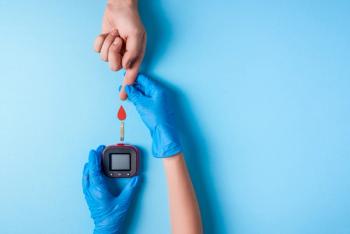
Examining Connections Between Migraine and Mental Health
Survey results addressed connections between migraine and mental health, stigma, and treatment preferences.
The majority of health care professionals and individuals with migraine believe migraine and mental health have a significant impact on one another, according to a recent survey.
The survey prompted 302 health care professionals who treat neurological diseases and 1100 individuals with migraine who also identify as having a mental health condition to share their opinions on migraine and its relationship to mental health. Among the participants, 92% of health care professionals and 84% of individuals with migraine reported that they believe worsening migraine can lead to a decline in mental health. Similarly, 94% of health care professionals and 87% of individuals with migraine reported that they believe better migraine control could result in better mental health. Most (91%) health care professionals and two-thirds (67%) of individuals with migraine reported that they believe those who can manage their stress and mental health conditions successfully are also better able to manage migraine.1
The survey touched on conversations surrounding migraine. Although two-thirds of individuals with migraine said they believe it is important to discuss mental health with the health care professionals who are treating their migraines, 77% of them said they are hesitant to discuss their migraines with health care professionals due to stigma surrounding migraines and mental health. Almost 60% said they raise the topic themselves but would prefer that their health care professional would initiate the conversation—however, 70% of health care professionals reported that they ask patients about their mental health always or often.1
The survey also addressed current and preferred treatment approaches. The top 3 most recommended mental health treatments among health care professionals were medication (83%), cognitive behavioral therapy or psychotherapy (71%), and relaxation therapy (70%). However, fewer individuals with migraine report using these techniques: 58%, 28%, and 26%, respectively. Most (91%) health care professionals and more than half (54%) of individuals with migraine said they believe migraine management should be more flexible and tailored to individual patient needs. Finally, nearly all individuals with migraine said they think it is equally important to treat migraine and mental health and would like their treatment plan to factor in both priorities. The survey was conducted by the American Migraine Foundation and Biohaven Pharmaceuticals.1
“Closing the gaps in communication between health care professionals and their patients can help improve migraine and mental health management,” said Larry Newman, MD, professor of neurology at NYU Grossman School of Medicine and chair of the American Migraine Foundation, in a press release. “I hope that the findings of this survey encourage people with migraine to feel empowered to speak out about their pain and have deeper, meaningful conversations about migraine and mental health without worrying about stigma. These are important conversations that both people with migraine and health care professionals should initiate at every visit.”
Reference
1. American Migraine Foundation survey shows nearly all people with migraine and healthcare professionals believe migraine and mental health significantly impact each other. Biohaven Pharmaceuticals. News release. July 28, 2022. Accessed July 28, 2022.
Newsletter
Pharmacy practice is always changing. Stay ahead of the curve with the Drug Topics newsletter and get the latest drug information, industry trends, and patient care tips.























